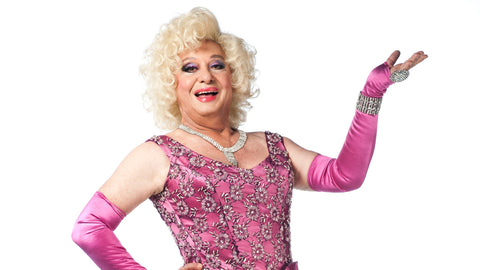Over the past decade, LGBTQ+ rights and visibility in Turkey have become increasingly fragile, particularly following the political shift after 2015.

Introduction
The growing influence of political Islam and conservatism has made it more difficult for queer people to live openly and safely. Still, for travelers—especially those sticking to major cities and touristic zones—Turkey can be a welcoming and enjoyable destination, provided they understand and respect certain social realities.
Let’s be clear: Turkey is not a country where queer life is illegal. Homosexuality has never been criminalized in modern Turkish law, and sex reassignment is legal. However, this legal status doesn’t always translate to social acceptance, especially for Turkish citizens. For tourists, the rules tend to bend. Most visitors, even those who are visibly queer, are unlikely to face open hostility in tourist-heavy areas—unless they knowingly wander into conservative neighborhoods or behave in ways that sharply contradict local norms.
Queerness in Istanbul: Complex, But Manageable

In Istanbul, queerness exists with complexity. The city has vibrant, diverse pockets—Kadıköy,Cihangir, Şişli—where LGBTQ+ individuals are often seen and mostly left alone. In these areas, it’s not unusual to spot gay couples walking together or trans people going about their day without interference. But this acceptance has limits.
Public displays of affection, especially between two men, are generally frowned upon. Even straight couples are cautious about PDA, with kissing in public considered inappropriate in most places. While two women holding hands may not draw attention, two men doing the same could invite stares, comments, or worse.
That said, the key to safety in Istanbul as a queer traveler is simple: stay in the right neighborhoods. Avoid districts known for their conservatism, like Bağcılar, Esenyurt, or Fatih (not Sultanahmet but the residental areas)—places that aren’t on the tourist radar anyway. Stick to central, diverse, and youthful areas where the atmosphere is more tolerant, and the people are used to difference.

Transgender visitors are also generally safe in Istanbul and other touristic zones. While transphobia certainly exists in Turkish society, tourists tend to be seen as outsiders who operate by different rules. For trans travelers—especially trans women or visibly gender-nonconforming people—traveling with friends or staying in groups adds an extra layer of security. Again, the risk is usually minimal if you remain in touristic parts of the city and avoid drawing attention in more traditional areas.

What About Other Cities?
Outside Istanbul, experiences vary. İzmir is widely regarded as the most LGBTQ+ friendly city in Turkey. Known for its laid-back vibe and coastal liberalism, İzmir even has a growing queer nightlife scene and hosts pride events (despite bans in other parts of the country). Here, queer travelers will likely feel at ease, even dressing in ways that might stand out elsewhere. You might see two men walking hand-in-hand here, yet we wouldn’t recommend you to take the risk.
Antalya, another major tourist destination, is somewhat neutral. It’s heavily touristic, meaning that most locals are used to foreigners and generally tolerant as long as social norms are respected. Cappadocia, with its magical landscapes and honeymoon charm, is less about nightlife or visible queer presence, but it’s safe. People are friendly and focused on tourism, so identity often fades into the background.
However, the farther east you go—toward the more conservative and rural regions—the less visible and less safe queerness becomes. Travelers heading in that direction should exercise additional caution and research specific areas in advance.
Final Thoughts
It’s worth noting that if something does go wrong, tourists can usually expect help from local authorities. Unlike the experiences many queer Turkish citizens face, tourists are often treated with more care by police and institutions. Turkey’s economy depends heavily on tourism, and harming a visitor—especially a foreigner—brings more risk to the system than benefit.
In the end, Turkey is not the safest destination for LGBTQ+ people, but it’s also not the most dangerous. With some awareness and a bit of caution, queer travelers can explore the country’s beauty, history, and culture without incident. It may not be the place to march in pride or kiss your partner in the street, but it is a place where you can be queer and be safe—especially if you know where to go and how to move.







